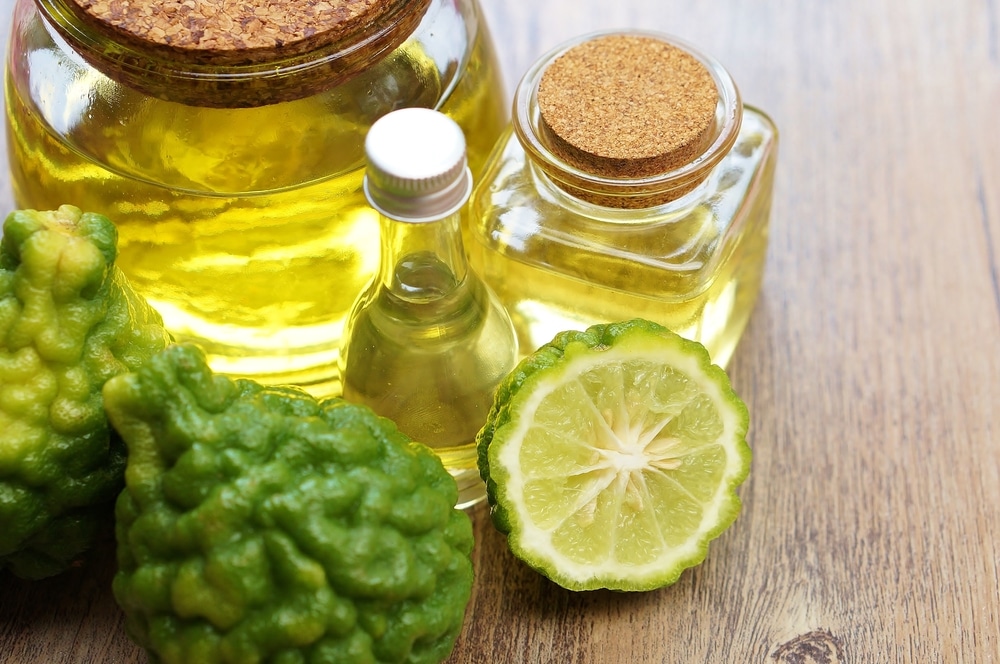Bergamot is one of the most versatile essential oils available. It has a range of benefits and uses, both physically and emotionally. Ironically, its origins are a source of debate. Some say it comes from Italy, while others point to Turkey or North Africa. No matter its place of origin, this essential oil is prized for its refreshing and uplifting aroma. It is extracted from the fruit of the bergamot orange tree, which is a hybrid of sweet orange and lemon. The oil has a sweet, citrusy scent that’s often used in perfumes and colognes because of its ability to create a bright, happy aura. But that’s not all it can do! Bergamot oil is said to be beneficial for skin, hair, and nails. It’s a natural antiseptic and can help disinfect cuts and scratches. It’s also thought to be helpful for treating acne, oily skin, and eczema (3). Bergamot oil is also said to be great for your emotional health. Let’s explore some of the ways you can use bergamot oil to benefit your mind and body.
Health Benefits Of Bergamot Essential Oil
Bergamot has a number of potential health benefits, including:
Stress Reduction
Depression, anxiety, and other mood disorders are common mental health problems that result in significant physical and emotional stress (3).
While there are many treatments available, such as medication and therapy, some people may find additional relief from using essential oils. Bergamot essential oil is one oil that has been claimed to be effective in reducing stress levels (3).
It has a refreshing citrusy aroma that is uplifting and might help to improve mood. It is also said to have calming effects, which are thought to help reduce anxiety and promote relaxation. Up to this point, human studies have not found a difference between bergamot oil aromatherapy and placebo in their effects on stress and anxiety. They have however seen a reduction in blood pressure from baseline in participants with both aromatherapy and topical administration, which could in turn impact stress and anxiety (3).
When used regularly, it might be a helpful tool in managing stress. It can be diffused into the air, applied topically, or taken internally as a supplement.
Treating Food Poisoning
Food poisoning can be a very unpleasant experience. It can make you feel sick, cause diarrhea and vomiting, and generally make you feel terrible.
There are many different things that can cause food poisoning, such as bacteria and viruses, but thankfully there are also ways to help treat it.
One treatment that might help is bergamot oil. It contains linalool, which is a compound that has been shown in the lab to be effective against some of the bacteria that can cause food poisoning (2).
Bergamot oil can be applied topically or ingested, and it is available in both essential oil and supplement form.
Although research on the use of bergamot oil for food poisoning is limited, there are some studies that suggest it might be helpful.
A study published in the Italian Journal of Food Safety found that bergamot essential oils were varyingly effective against some strains of Listeria monocytogenes, the bacteria that causes listeriosis infection (5).
Talk to your doctor before trying any natural remedies for foodborne illness or any other type of illness or infection.
Lowering Cholesterol
There are two types of cholesterol-carrying molecules in the human body; low-density lipoprotein (LDL) and high-density lipoprotein (HDL).
LDL is often called the “bad cholesterol” because it can build up in the arteries and increase the risk of heart disease. HDL, on the other hand, is often called the “good cholesterol” because it helps to remove excess cholesterol from the arteries (3).
Bergamot extract is a natural remedy that has been shown in some studies to help lower LDL cholesterol levels and increase HDL cholesterol levels (3).
Researchers theorize that the flavonoids found in bergamot oil help to improve cholesterol levels by preventing the oxidation of LDL cholesterol, which is what leads to it forming plaques in the arteries. Additionally, bergamot oil has anti-inflammatory properties that may also help to reduce the risk of heart disease (3).
Read More: Oregano Oil Benefits For Skin
Reducing Pain And Inflammation
Linalool and carvacrol are two of the most important components in bergamot oil. These components are believed to have anti-inflammatory and analgesic effects, which is why bergamot oil is often used to reduce pain and inflammation (3).
Research is limited on the use of bergamot oil for pain and inflammation, but there are some studies that support its potential. A review of several studies found that bergamot extract could be effective against inflammation (3).
Some conditions that may benefit from bergamot oil include arthritis, carpal tunnel syndrome, and headaches. It might also be helpful for reducing the pain associated with menstrual cramps (7).
Skin conditions such as eczema and psoriasis may also benefit from bergamot oil since it might help to reduce inflammation and itching, and may also help to speed up the healing process (3).
Always talk to your doctor before trying bergamot oil to treat any medical condition, and do a patch test first if you are applying it topically.
Treating Acne
Acne is a skin condition that is characterized by blackheads, whiteheads, and inflamed pimples. Bergamot oil has shown promise as a spot treatment for acne. It may help to clear up blemishes, prevent new breakouts, and reduce inflammation (4).
Bergamot oil is also a powerful antiseptic and antibacterial agent. It may help to kill the bacteria that cause acne breakouts (4).
There are a few ways to use bergamot oil to treat acne. You can add a few drops of the oil to your facial cleanser, or you can apply it directly to the skin. If you are applying it directly to the skin, be sure to dilute it with a carrier oil, such as jojoba oil, before use.
You can also make a bergamot acne face mask by mixing 1 tablespoon of honey, 1 tablespoon of aloe vera juice, and 2 drops of bergamot oil. Apply the mask to your face and leave it on for 10-15 minutes. Rinse it off with warm water and pat your skin dry.
To get the most out of bergamot oil for acne, be sure to use it regularly. You should see a noticeable improvement in your skin condition within a few weeks.
If you have sensitive skin, talk to your dermatologist first and always do a patch test before applying anything new to your face.
Treating Psoriasis
Psoriasis is a chronic skin condition that can cause red, inflamed patches of skin covered in scales. While the cause of psoriasis is unknown, it is thought to be related to an immune system disorder (3).
Psoriasis can be treated with medications, including topical treatments and systemic therapies, but some people may also find relief from using bergamot oil (3).
This oil contains powerful antioxidants and anti-inflammatory compounds that may help to improve the symptoms of psoriasis. It can be applied topically to the skin or used in a diffuser (3). There have not been many studies done on the use of bergamot for psoriasis. The most safe and effective dose and administration method is not known. Always talk to your doctor before trying bergamot oil for psoriasis relief.
BetterMe app will provide you with a host of fat-frying fitness routines that’ll scare the extra pounds away and turn your body into a masterpiece! Get your life moving in the right direction with BetterMe!
Managing Agitation And Other Psychological Symptoms
Patients with Alzheimer’s disease who are agitated can be extremely difficult to manage. There are a variety of strategies that can be used to help these patients, including medications and therapies (6).
Unfortunately, most medicines have a sedating effect. This is where bergamot oil might come in.
Bergamot oil is a natural essential oil that has been shown to be effective in managing agitation in both elderly patients and those with Alzheimer’s disease (6).
It has a refreshing citrus scent that is said to be calming and uplifting. It might also help manage other psychological symptoms, such as anxiety and depression.
Bergamot oil can be used in a variety of ways. It can be applied topically to the skin, mixed with a carrier oil such as almond oil or grapeseed oil. It can also be diffused into the air using an essential oil diffuser. Alternatively, it can be ingested by adding a few drops to water or juice.
It can be used by itself or in combination with other therapies. It is important to note that bergamot oil should not be used if the patient is taking certain medications, such as blood thinners.
Research on using bergamot oil for dementia patients is limited. It is always best to consult with a healthcare professional before starting any new treatment.
Lowering Blood Sugar Levels
Bergamot oil is a type of essential oil that has been suggested to help lower blood sugar levels in people with diabetes. This is likely due to the oil’s possible ability to improve insulin sensitivity. However, studies on this are still very limited (3).
If you’re considering using bergamot oil to help lower your blood sugar levels, be sure to consult with your doctor first.
Read More: Canola Oil Nutrition Facts, Health Benefits, And Side Effects
Side Effects Of Bergamot Essential Oil
There are a few things to keep in mind before using bergamot oil.
Phototoxicity
Bergamot oil is a source of bergapten, a compound that can make skin photosensitive (1).
This means that if you apply bergamot oil to your skin and then go out in the sun, you may get a sunburn. A bright red rash is a common sign of bergamot oil phototoxicity (1).
To avoid any problems, it is best to wait at least 12 hours after applying bergamot oil before going out in the sun. Apply it at night before bed rather than in the morning. If you are going to be in the sun for a long time the next day, it is safest to avoid using bergamot oil altogether.
To avoid any problems, it is best to wait at least 12 hours after applying bergamot oil before going out in the sun. If you are going to be in the sun for a long time, it is safest to avoid using bergamot oil altogether.
Diluting bergamot oil with a carrier oil such as jojoba or almond oil can help reduce the risk of phototoxicity.
However, even when diluted, bergamot oil should not be applied to skin that will be exposed to direct sunlight.
Allergic Reactions
Like with any topical essential oil, it is possible to have an allergic reaction to bergamot oil.
Always patch test first. If you experience any signs of an allergic reaction, such as a rash, hives, or difficulty breathing, discontinue use and seek medical help.
Consumption
Unless it is recommended by a healthcare professional and in a form meant for internal use, bergamot oil should not be ingested.
Ingesting bergamot oil can result in a number of adverse effects, such as nausea, vomiting, and diarrhea (1).
Betterme will keep you laser-focused on your weight loss journey! Nutrient-packed meal plans, fat-blasting workouts, galvanizing challenges and much more. Try using the app and see for yourself!
Risks For Pregnant Women And Small Children
Pregnant women and small children should not use bergamot oil due to the risk of adverse effects.
Pregnant women should avoid using any essential oils, while small children should only be exposed to essential oils under the supervision of a healthcare professional.
The Bottom Line
Bergamot oil is a natural essential oil that has a variety of possible uses and benefits.
It has potential to be used to manage agitation, anxiety, depression, and blood sugar levels. It might also be effective in treating skin conditions such as acne, psoriasis and eczema. Research is limited on most of these uses, so always talk to a healthcare professional before trying bergamot oil for any condition.
Like most essential oils, bergamot oil should not be used by pregnant women or small children without first consulting a healthcare professional. Be sure to dilute the oil with a carrier oil before use and avoid exposure to direct sunlight.
DISCLAIMER:
This article is intended for general informational purposes only and does not serve to address individual circumstances. It is not a substitute for professional advice or help and should not be relied on for making any kind of decision-making. Any action taken as a direct or indirect result of the information in this article is entirely at your own risk and is your sole responsibility.
BetterMe, its content staff, and its medical advisors accept no responsibility for inaccuracies, errors, misstatements, inconsistencies, or omissions and specifically disclaim any liability, loss or risk, personal, professional or otherwise, which may be incurred as a consequence, directly or indirectly, of the use and/or application of any content.
You should always seek the advice of your physician or other qualified health provider with any questions you may have regarding a medical condition or your specific situation. Never disregard professional medical advice or delay seeking it because of BetterMe content. If you suspect or think you may have a medical emergency, call your doctor.
SOURCES:
- Benefits of Bergamot Oil And Its Side Effects (2020, lybrate.com)
- Citrus bergamia essential oil: from basic research to clinical application (2015, nih.gov)
- Efficacy of bergamot: From anti-inflammatory and anti-oxidative mechanisms to clinical applications as preventive agent for cardiovascular morbidity, skin diseases, and mood alterations (2019, nih.gov)
- Essential Oil and Juice from Bergamot and Sweet Orange Improve Acne Vulgaris Caused by Excessive Androgen Secretion (2020, nih.gov)
- Evaluation of the Antibacterial Activity of Bergamot Essential Oils on Different Listeria Monocytogenes Strains (2016, nih.gov)
- Neuropharmacological Properties of the Essential Oil of Bergamot for the Clinical Management of Pain-Related BPSDs (2019, pubmed.gov)
- Pain relief assessment by aromatic essential oil massage on outpatients with primary dysmenorrhea: a randomized, double-blind clinical trial (2012, nih.gov)





















